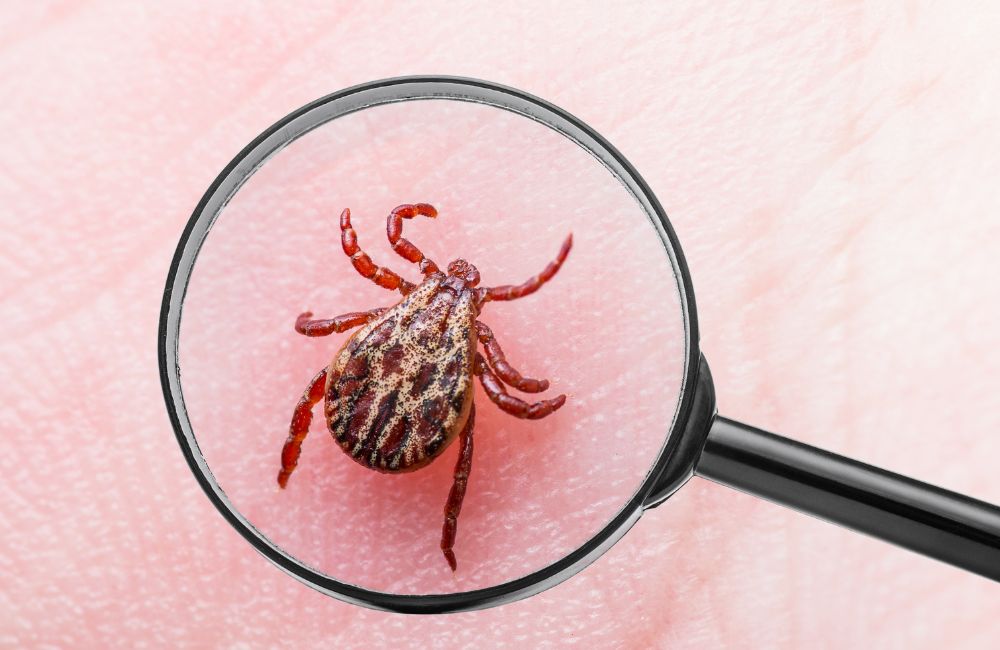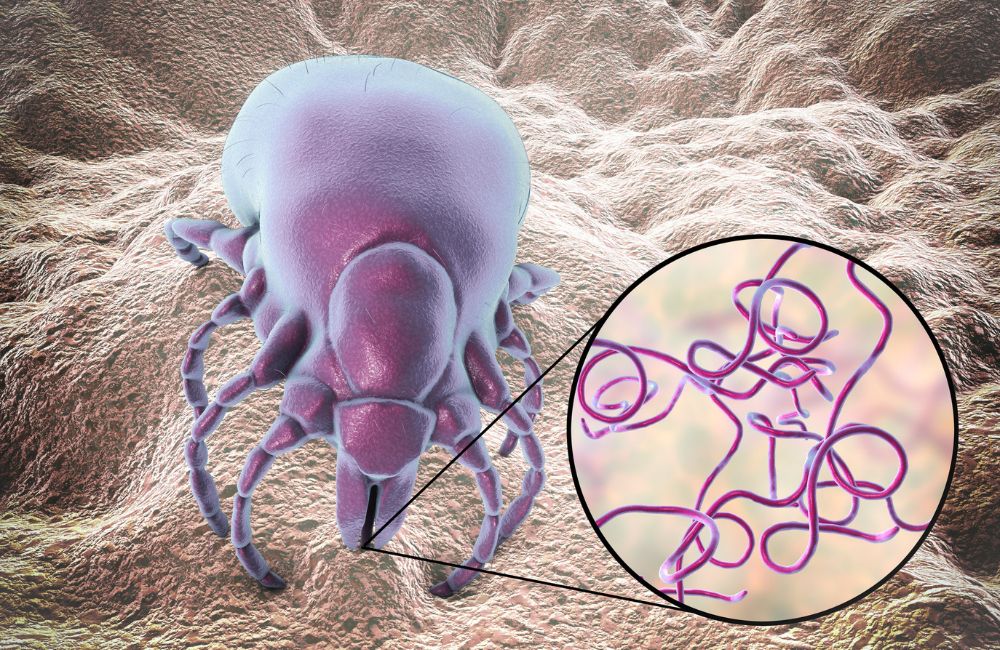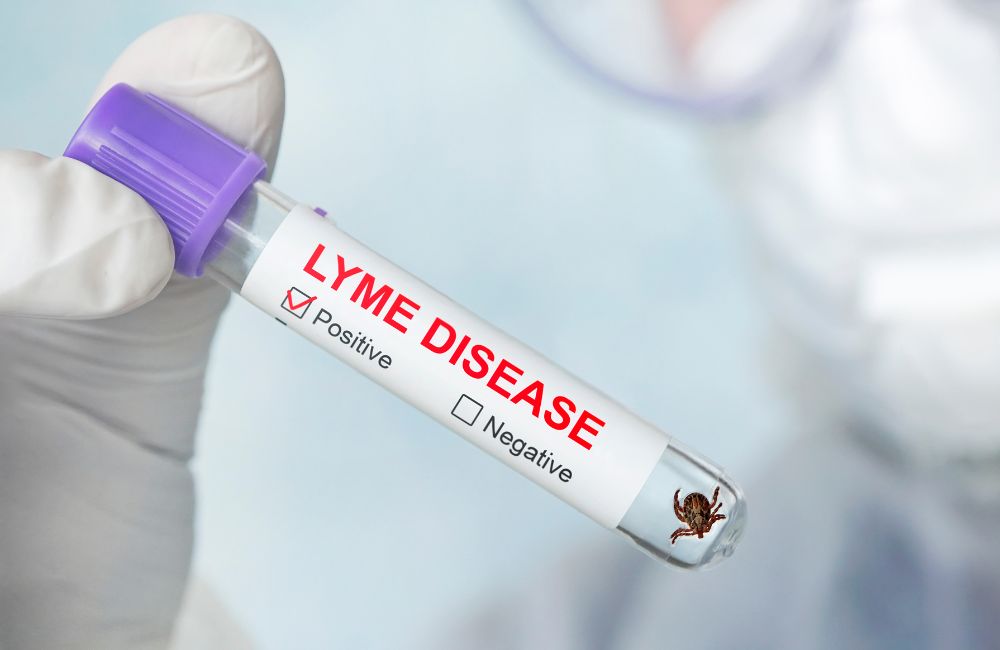
According to the Connecticut Department of Public Health, the number of Lyme disease cases has steadily increased, with Fairfield County reporting the highest numbers in Connecticut. Understanding this disease is crucial to safeguarding your health and your family. This blog provides comprehensive details on prevention, diagnosis, and treatment options for Lyme disease. Sharing this information with your primary care doctor in Fairfield, CT, is vital to collaboratively creating an effective management plan for the disease.
Introduction
Key Takeaways
What is Lyme Disease
10 Questions to Ask About Your Lyme Disease Treatment
Frequently Asked Questions
✔ Lyme disease is a bacterial infection transmitted by ticks, prevalent in Fairfield, CT.
✔ Ticks transmit Lyme by feeding infected animals and then biting humans.
✔ Early symptoms include a bullseye rash, fever, headache, and fatigue.
✔ Lyme disease is diagnosed through the ELISA test, followed by a Western blot test.
✔ Early treatment usually involves antibiotics, which are most effective when started early.
✔ Discuss the efficacy and risks of alternative treatments with a primary care doctor in Fairfield, CT.
✔ Regular follow-up with your doctor is crucial to monitor treatment progress and manage symptoms.
✔ Regular discussions with your primary care doctor in Fairfield, CT, are essential for effective Lyme disease management.
Lyme disease is a serious bacterial infection caused by Borrelia burgdorferi, transmitted through bites from black-legged or deer ticks. Black-legged ticks are small, teardrop-shaped insects, typically brownish or dark orange, and may grow significantly after feeding. If untreated, lyme disease can lead to significant health issues such as arthritis, neurological disorders, and heart complications.
Ticks become Lyme disease carriers after feeding infected hosts like deer or mice. Once infected, ticks can transmit the bacteria to humans when they attach to the skin and begin feeding. The likelihood of transmission significantly increases if the tick remains attached for 36 to 48 hours or longer, making prompt detection and removal crucial.
In Fairfield, CT, the risk of encountering ticks is heightened due to the prevalence of grassy, bushy, and wooded areas where these ticks and their hosts thrive. Residents must be vigilant when engaging in outdoor activities in such environments. Consulting with primary care doctors in Fairfield, CT, can provide additional local insights on tick activity and effective prevention strategies, helping to minimize the risks associated with Lyme disease.

Lyme disease treatment can be complex, making it necessary to have clear conversations with your healthcare provider. Here are 10 essential questions for primary care doctors in Fairfield, CT, to help you better understand your condition and actively participate in healthcare decisions.
Early detection can lead to a prompt diagnosis, critical to effectively treating the disease and preventing severe complications. Since Lyme disease symptoms can mimic other conditions, such as chronic fatigue, fibromyalgia, and rheumatoid arthritis, discussing them with a local primary care doctor in Fairfield, CT, ensures that you receive the correct diagnosis and appropriate treatment. Additionally, your doctor can guide you on the best steps to take if you suspect you’ve been bitten by a tick or are showing early signs, helping you manage your health proactively.
Asking your primary care doctor in Fairfield, CT, about how to test for Lyme disease ensures a timely and accurate diagnosis. Understanding the testing process, including the types of tests available and their optimal timing, is essential because tests can sometimes yield false negatives if conducted too early. Being well-informed about the testing protocols allows you to make educated decisions about your health and treatment options, particularly if symptoms persist or recur.
However, testing for Lyme disease too early after exposure may not yield accurate results due to the body’s delayed antibody production, which can lead to false negatives. Therefore, it is crucial to maintain ongoing communication with your primary care doctor in Fairfield, CT, especially if symptoms persist or new symptoms arise. This continuous dialogue ensures that your health is closely monitored and allows for necessary adjustments in testing or treatment to be made promptly.
Discussing the available treatments with a local primary care doctor in Fairfield, CT, helps you understand the benefits and potential side effects. This enables you to manage the disease more effectively and prevent long-term complications. This discussion empowers you to make informed decisions about your healthcare journey.

Awareness of the persistent symptoms after Lyme disease treatment allows for assessing treatment effectiveness and helps address Post-Treatment Lyme Disease Syndrome (PTLDS). These symptoms include fatigue, joint pain, cognitive difficulties, sleep disturbances, headaches, and mood changes. Additionally, ongoing symptoms could indicate other underlying health issues. Based on your condition, your primary care doctor in Fairfield, CT, can adjust your treatment plan, explore alternative therapies, or recommend further testing.
The best primary care doctor in Fairfield, CT, will help you understand the treatment’s side effects and monitor your health effectively. This awareness allows for informed decision-making about your treatment options and can lead to necessary adjustments to ensure the treatment is both effective and tolerable.
Consulting your doctor about Lyme disease prevention allows you to safeguard against this tick-borne illness proactively. Prevention is essential in areas like Fairfield, CT, where Lyme disease is prevalent. A primary care doctor can provide tailored advice based on local risk factors and your lifestyle, ensuring you understand the best practices for tick prevention.
Chronic Lyme disease is a term used for the lingering symptoms after Lyme disease treatment, such as fatigue, pain, and cognitive issues, which can persist for months or years. The concept is controversial due to unclear diagnostic criteria, uncertainty about whether symptoms are caused by ongoing infection or an immune response, and debate over treatment methods like prolonged antibiotic use. These controversies highlight the need for more research into effective treatments and management strategies for those affected by Lyme disease. Discussing it with your local primary care doctor in Fairfield, CT, can clarify the following risks.

Explore all available options beyond conventional antibiotics. Your local primary care doctor in Fairfield, CT, will recommend alternative treatments that offer additional relief, especially for those experiencing persistent symptoms or looking for complementary approaches. Understanding each option’s effectiveness, potential benefits, and risks is crucial.
Discussing follow-up frequency with your doctor ensures the effectiveness of the treatment and monitors for any potential complications or lingering symptoms. Regular follow-ups allow your primary care doctor in Fairfield, CT, to assess your progress, make necessary adjustments to your treatment plan, and provide support as you recover.
Knowing what to do if you find another tick is crucial to preventing Lyme disease from recurring. Prompt action can reduce the transmission chance if the tick carries pathogens.
It’s impossible to tell by looking at a tick whether it carries Lyme disease bacteria. If you have been bitten, monitoring for symptoms and consulting your primary care doctor in CT is essential. If the tick is available, they may suggest sending it for testing.
To make your property less inviting to ticks, keep your lawn mowed, remove leaf litter, clear tall grasses, and brush around homes and at the edge of lawns. To restrict tick migration, place wood chips or gravel between lawns and wooded areas. Additionally, acaricides (tick pesticides) should be used responsibly to reduce tick populations.
Improvement can vary depending on the Lyme disease stage at the diagnosis. Symptoms may improve in the early stages within a few days to weeks of starting antibiotic treatment. However, recovery might take longer for more advanced cases, or those involving neurological symptoms, and some symptoms may persist for months, even after antibiotics.
If you suspect you have Lyme disease, it’s essential to seek medical attention from a trusted primary care doctor near you, like DOCS Primary Care – Fairfield. Our experienced healthcare professionals can provide comprehensive assessment, accurate diagnosis, and personalized treatment plans tailored to your needs. Schedule your appointment today to discuss prevention, symptoms, and treatment options. Protect your health and take action against Lyme disease with your trusted primary care doctor in Fairfield, CT. Don’t wait—reach out now to secure your health tomorrow!



During this surge in COVID-19 cases, our primary focus is meeting the high demand for tests, and we are seeing higher than usual wait times. This means we are unable to answer most phone calls. Please know that our teams are working very hard during this time to care for as many patients as safely as possible. Please click the button below for answers to common questions. We appreciate your understanding.